News
-
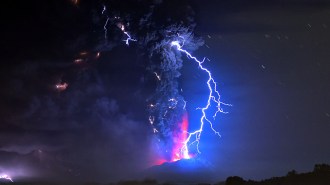 Life
LifeAncient giant eruptions may have seeded nitrogen needed for life
A new study bolsters the idea that on the young Earth volcanic lightning may have provided some materials that made it possible for life to emerge.
By Bas den Hond -
 Health & Medicine
Health & MedicineSan Francisco airport will monitor plane waste for COVID-19 variants
The airport, working with the CDC and a biotech company, will be the first in the United States to regularly test plane sewage.
-
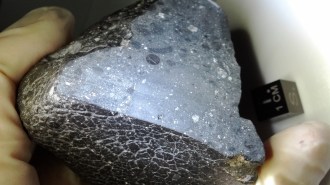 Planetary Science
Planetary ScienceWhy you shouldn’t use magnets when looking for meteorites
A popular tool for identifying meteorites can overwrite records of magnetic fields stored within the space rocks.
-
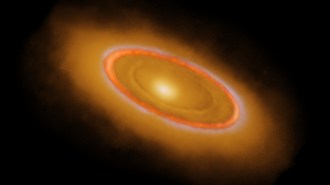 Astronomy
AstronomyThe James Webb telescope revealed surprise asteroids in the Fomalhaut star system
New images of Fomalhaut confirm that an alleged planet is probably just dust while also revealing a new asteroid belt and a “Great Dust Cloud.”
-
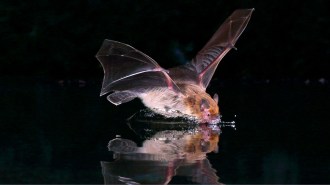 Animals
AnimalsPregnancy may hamper bats’ ability to ‘see’ in the dark
Tiny Kuhl’s pipistrelle bats make fewer calls when pregnant, which may make it more difficult to hunt prey, lab tests hint.
By Freda Kreier -
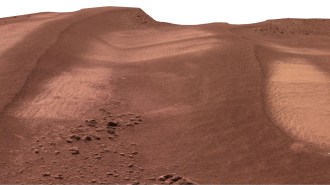 Space
SpaceSalty water may have flowed near Mars’ equator as recently as 400,000 years ago
Crusts and cracks on Martian sand dunes are a sign salty water flowed near the equator thousands, not billions, of years ago — and may still exist.
-
 Health & Medicine
Health & MedicineWHO declares an end to the global COVID-19 public health emergency
Global COVID-19 deaths are down and immunity is up. But with the virus here to stay, it’s time to shift to more long-term health measures.
-
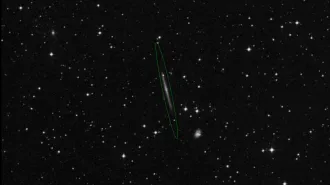 Astronomy
AstronomyA streak of light may not be a black hole fleeing its galaxy after all
A suspicious trail of starlight may just be a spiral galaxy seen edge on, not stars that formed in the wake of a runaway supermassive black hole.
By Liz Kruesi -
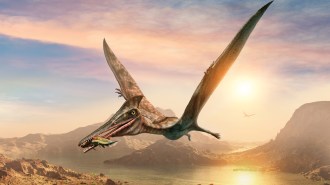
New discoveries are bringing the world of pterosaurs to life
The latest clues hint at where pterosaurs — the first vertebrates to fly — came from, how they evolved, what they ate and more.
By Sid Perkins -
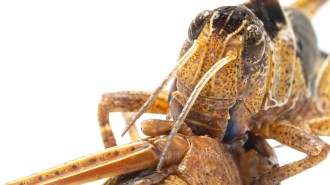 Life
LifeSwarming locusts can deploy a chemical to avoid being cannibalized
Releasing a “don’t-eat-me” pheromone signals a locust has become a toxic treat. The finding could lead to new ways to control destructive swarms.
-
 Health & Medicine
Health & MedicineThe U.S. COVID-19 public health emergency is ending. What does that mean?
The declaration, made early in the pandemic, made tests, vaccines and treatments free to all. On May 11, the proclamation ends.
-
 Health & Medicine
Health & MedicineWomen who’ve had breast cancer can safely pause treatment for pregnancy
Hormone therapy cannot be taken during pregnancy. A new study is reassuring for women who’ve had breast cancer and want to try for a baby.